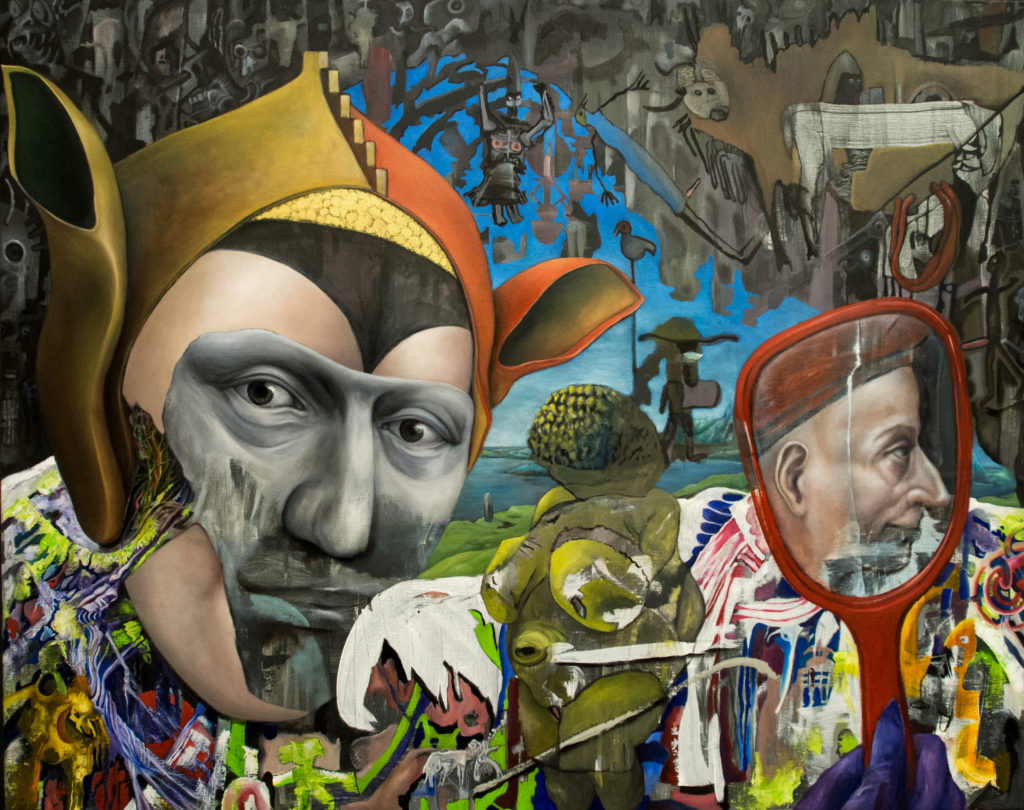
the loss of mythology
The essence of childhood, at least in the ideal case, is inspired by the idea or experience of an ideal world.
They don’t yet know about guilt and therefore appear innocent. The birth is just behind them and in the best case, a whole life ahead of them in which they can, want or have to question their existence, their finiteness or the meaning of life.
I have deliberately inserted “can and want” here, because in Western societies it is hardly customary anymore to “really” ask these most important questions in a person’s life for my hypothesis.
The conclusion to my hypothesis is first and foremost: Western societies have demythologized the world.
When we look back on cultures long past, such as that of ancient Egypt or the Greeks, it is almost always from a point of arrogance. We appreciate their achievements, their progress and look down on their gods as if we were standing above them, with all our zeitgeist, our scientific view of the real, with all our technology and rational logic. As a rule, we think of these societies in such a way that they just didn’t know any better back then and were more or less condemned to believe for this reason.
But what exactly is mythology? What’s the myth in itself?
When I say that Western societies have demythologized the world on their way to devoting all attention to the individual, I mean that they have banned transcendence from their worldview in favor of the apparently real, understandable world. That is, everything I can prove is provable and therefore true for. The belief, which has been re-functionalized in the form of institutionalized religions as a derivative of the great myths of earlier times, is still sufficient today, but the ideas about the content of these stories are also those of a child. Best-selling books like those by Juval Noah Harari are testimony to this!
The word existence contains the Latin word “existere” which means nothing else like stepping out. Each of us feels and knows that he / she exists. But what do we emerge from?
If this world into which we enter, our reality is a world of diversity, a world of opposites, then the world from which we have stepped must be a world of unity.
This unity (God, power, energy are interchangeable names for it) is logically inconceivable.
The myth is something like the transcendental outpouring from this dimension, a fundamental shining through of this, which is immanent in all material appearances.
We humans carry this reflection just like all other living beings and things in us and began to interpret this reflection.
The world of polarities is inevitably also a world of decisions, because just not acting would free us from it.
However, this would also mean either not to breathe or to breathe in harmony with consciousness, because breathing connects us with our world of polarities
Over time we had learned to respond to these reflections in the form of rituals.
We call these rituals cult in a collective term. They should help us to experience the meaning of life in a transcendental way.
Here I want to span the arc to my headline, because what I really miss in our western world today is, for example, the ritual to cut the cord from one’s parents, the puberty ritual. A ritual which serves to cut the child’s “psychic/soul” umbilical cord and to introduce children into the world of adults. This ritual is accompanied by a deep emotional shock, which gives an idea of the finiteness of the physical experience. The important counterpart to this experience is, of course, the opening of the transcendental gaze for the underlying, the eternal, the unity.
If we do not have this experience, I believe we will get stuck in the stage of a sheltered childhood. We are inevitably getting older, but these essential questions about the meaning of life, death as a transformation, are not answered.
We then have no choice but to suppress natural aging and so we drive the fear of the inevitable end of this life before us.
The meaning of life is pushed in one direction, to pack everything into this one life, into this lifespan. We seek recognition instead of responsibility. The playground of success ultimately drives this desire for recognition to not being able to let go
In my Opinion this is the reason for clinging to property and in the sense of an infantile game Johan Huizinga/Puerilismus) power is generated from it.
We see the blossoms of this spiritual rationalization everywhere, heads of state who have completely lost touch with the people in their narcissistic self-image and their hubris. Men in the midlife crisis delight themselves with goods that are upgrading their status, or sexual misbehaviours. Women who get fertilized in fertilization clinics in order to breed children in place of their formerly loved soft toys or dolls. Aging people in youth madness who have their faces and bodies cut up to look young again. Old people who just want to forget what they lived for or who hope to be surprised by death in their sleep so that they do not notice it. The division between young and old in general
Father or mother figures are projected into responsible positions. Even the state as an abstract institution is seen as a father state and thus linked to the hope that it naturally has to take care of you.
Science no longer functions in the sense of a child’s curiosity, but is instrumentalized by its own product, technology. This should then eliminate everything that opposes the collective inner fear and bring about prosthetic extensions in all possible directions in order to free us from the essential questions such as why are we here?.
This topic is of course much more complex than the fragments cited here and with this in mind I would like to close with Friedrich Nietzsche:
When Nietzsche said: God is dead, he was not saying that the transcendental does not exist, but rather that we should grow up, that we should take responsibility for our life and death is the exhaling transition of it!

